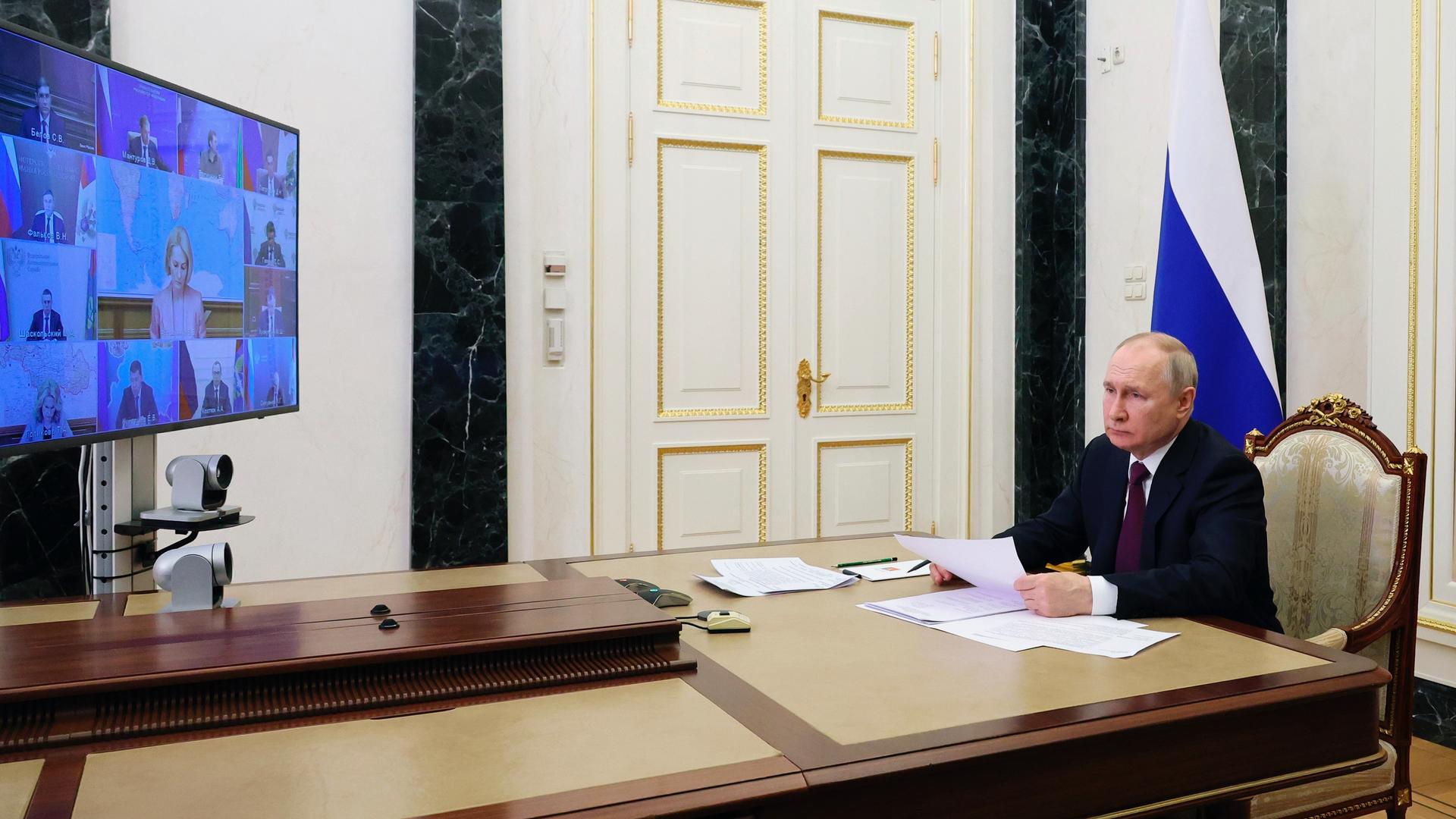More than a year of war has changed Ukraine forever — but it is also reshaping Russia, with opinion starkly divided on what should happen to the country after the conflict.
Russian President Vladimir Putin is hoping its borders will be expanded and his own grip on power will be strengthened. Many outside Russia are pushing for a future without Putin, in which Moscow will never again be in a position to invade its neighbors.
But some Russians themselves are calling for a restructuring of the country and a rethinking of Russian national identity — often at great personal risk.
Alexandra Garmazhapova, a Russian citizen originally from the Siberian region of Buryatia, now lives between Brussels and Prague.
Earlier this year, she said, she was put on Russia’s wanted list over her work with a group calling for greater autonomy for Buryatia.
“If I try to go back, I’ll be arrested as soon as I get off the plane,” she said.
She also voiced fears about other activists and opposition figures who have been poisoned by Russian agents.
Garmazhapova is one of a number of ethnic-minority activists who are using the conflict in Ukraine to highlight racism within Russia and fight Moscow’s top-down rule of the country.
About 70% of Russians are ethnically Slavic, but the country is also home to almost 200 other ethnic groups, like Buryats, who have historically been badly treated.
Garmazhapova said it’s absurd for Putin to call himself an anti-fascist, and say that he invaded Ukraine to fight naziism there.
“He’s the xenophobe in chief,” she said. “He’s a chauvinist who has proudly described himself for years as a Russian nationalist.”
The president often talks about Russia’s multi-ethnic makeup. But in reality, authorities have long targeted ethnic minority activists and tried to limit the teaching of minority languages.
Thousands of miles from the capital, Buryatia is one of Russia’s poorest regions. It has historic ties to Mongolia but was colonized by Tsarist Russia from the 1600s.
Garmazhapova said that she would often be told to “go home” to China or Uzbekistan, because of her Asiatic appearance.
“I’d say, ‘Actually, I’m a citizen of the Russian Federation. I have the same passport that you do.’”
At the start of the invasion, Garmazhapova’s Free Buryatia Foundation helped soldiers from the region escape army contracts and return home.
The group said Buryat men were used as “cannon fodder” as their lives were seen as less valuable. Then, they were unfairly blamed for committing the worst atrocities of the war.
But bringing soldiers back from the front has become all but impossible under new laws.
Now, Garmazhapova is campaigning for genuine local government in Russia — like in the United States or Germany.
That dream might be a long way off.
Putin has spent the last two decades centralizing power in the Kremlin, and anyone who challenges this in a meaningful way is arrested, forced to flee the country, or in some cases, killed.
Some ethnic minority activists want to go even further than Garmazhapova. They don’t want their regions to be part of the Russian Federation at all — they want to be completely independent.
Among them is Raisa Zubareva, an activist from Yakutia, a far eastern region. She now lives in Warsaw.
“Russia mustn’t carry on existing as it is. In its current form, it will always be a threat,” she said, adding that the mineral resources that provide the money for the military come from regions like hers.
Most politicians in the West, she said, are reluctant to publicly back the breakup of Russia, rejecting it as too extreme.
But she suggested that, if you keep repeating an idea, eventually, it will become normalized.
Zubareva said that she doesn’t see a problem with activists like her living outside Russia.
“If they stay there, they will be arrested, and you can’t communicate with the public from prison.” Her Free Yakutia Foundation sees its work as informing the public and changing attitudes.
Activists might be divided on whether they want independence or just greater autonomy. But they all agree that the war in Ukraine has given them an important opportunity to bring their plights to global attention.
They say that invasion has laid bare Russia’s imperial, colonial mentality, which is not just killing Ukrainians, but also harming ethnic minorities within its own borders.
Abubakar Yangulbaev is a human rights lawyer from Chechnya, which was brutally subjugated by Moscow after fighting for its independence. He now lives in Paris.
“After Russia invaded Ukraine, we started to talk about racism, chauvinism and xenophobia inside Russia,” Yangulbaev said. “And it’s a big problem, because in Russia, Russia never fought against racism.”
Now, people are starting to pay attention to what life is actually like for minorities in Russia.
“Right now, many national minorities have resources, we have a network.”
While Russian society becomes ever more nationalistic as the war drags on, conversations around racism and decentralization are beginning to happen.
People from minority groups are increasingly interested in their own cultures and history, these activists say. Whatever the challenges ahead, they believe another Russia is possible.
The story you just read is accessible and free to all because thousands of listeners and readers contribute to our nonprofit newsroom. We go deep to bring you the human-centered international reporting that you know you can trust. To do this work and to do it well, we rely on the support of our listeners. If you appreciated our coverage this year, if there was a story that made you pause or a song that moved you, would you consider making a gift to sustain our work through 2024 and beyond?
